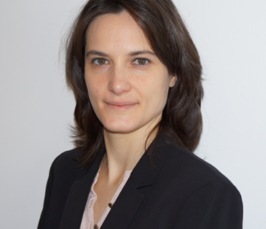Virtual Max Planck Colloquium: Dr. Laura Torrente, The role of green ammonia in a future carbon-free energy landscape, University of Cambridge
Virtual Max Planck Colloquium: Dr. Laura Torrente, The role of green ammonia in a future carbon-free energy landscap, University of Cambridge
- Datum: 21.07.2022
- Uhrzeit: 15:00 - 16:00
- Vortragende(r): Dr. Laura Torrente
- Department of Chemical Engineering and Biotechnology, Head of Catalysis and Process Integration group, University of Cambridge, UK
- Ort: Max-Planck-Institut Magdeburg
- Raum: Virtuell via Zoom
- Kontakt: sek-pse@mpi-magdeburg.mpg.de

The Max Planck Institute (MPI) for Dynamics of Complex Technical Systems, in Magdeburg/Germany, is organizing a series of Virtual Max Planck Colloquia with internationally leading scientists as speakers in order to screen the research field "Physical and Chemical Fundamentals of Process Engineering", and to identify the scientific frontiers and new challenges in that field and in neighbouring research areas.
Das Kolloquium findet virtuell statt.
Abstract
When Fritz Haber and Carl Bosch developed the artificial nitrogen fixation process (the so-called Haber-Bosch process), they put ammonia in the centre of the first chemical global revolution, enabling the expansion of the population with its use as fertilisers. This seminar will focus on the technological challenges to enable a second ammonia revolution as a portable long-term (days to months) energy storage vector versus the short-term storage (seconds to hours) offered by electrochemical storage (i.e. batteries). Green ammonia offers unique opportunities due its high hydrogen content, known handling and existing transport infrastructure. As such, it can reshape the current energy landscape by directly replacing fossil fuels in transportation, heating, electricity, etc. In addition, new economic opportunities will arise as many countries will inevitably become net-energy importers/exporters with the outlook of a renewable energy market similar to the current one based on fossil fuels.
The future of a carbon-free society, and indeed the electrification of the chemical industry, relies on the use of intermittent and variable renewable energy supply (solar, wind, hydro) to power chemical processes such ammonia synthesis. Combining catalysis and material development with reactor, we present a novel integrated single-vessel green ammonia production process in an attempt to re-defined the conventional, high capital, steady-state Haber-Bosch process. In addition, our techno-economic analysis highlights the paramount importance of the flexible and fast ramping capabilities of the green ammonia synthesis as well as the need for tailored approaches and efficient strategies for dynamic operation.
About Dr. Laura Torrente
Dr Laura Torrente is a Reader in the Department of Chemical Engineering
and Biotechnology at the University of Cambridge where she lead the Catalysis
and Process Integration group. She has expertise in the areas of reaction
engineering, process integration, sustainable chemical processes and energy.
She is a member of the UK Catalysis Hub. Her research is being supported by the
UK Research Council, Horizon 2020, Innovate UK and industry; having been
recently awarded an ERC Consolidator grant. She has received the Future leaders
in Engineering Sponsorship Award and the Rushlight Carbon Capture and Storage
Award. She has recently co-author a policy brief document commissioned by the
Royal Society entitled “Ammonia: zero-carbon
fertiliser, fuel and energy store” (royalsociety.org/green-ammonia).